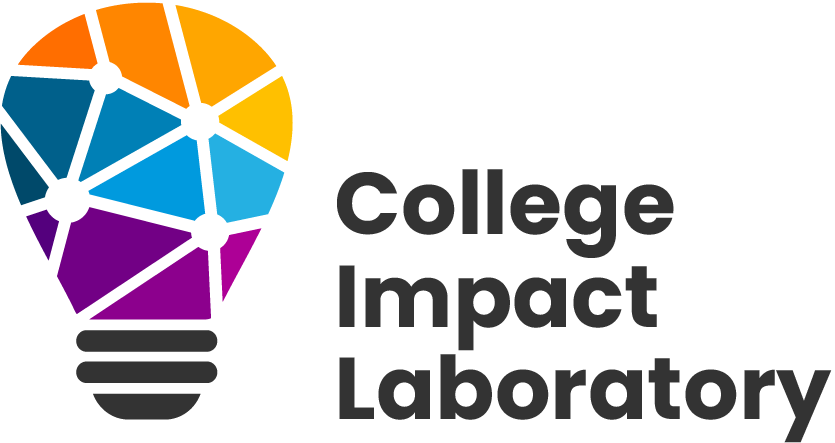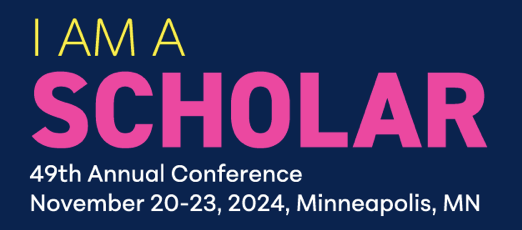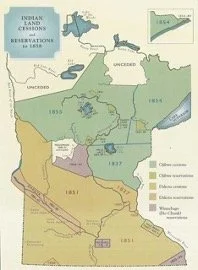
ASHE Conference
Association for the Study of Higher Education
Presentations
Join our faculty, graduate research assistants, and CoIL affiliates as they share their research findings at the 49th Annual ASHE Conference held in Minneapolis, Minnesota.
Examining the Effect of GDP and Western Worldview on International Student Mobility Flow during the Pandemic Onset from a Postcolonial Lens
Wednesday, November 20th, 1:00 to 2:15pm CST, Hilton Minneapolis, Floor: 2nd, Marquette II, 2nd Floor
Presenters: Ionell Jay Riantoco Terogo and Yun-Han Weng
Abstract: This quantitative study determines whether a country’s GDP and worldview affect international students' mobility despite the COVID-19 pandemic onset. Interpreting in a postcolonial lens, we explore how the Western worldview in higher education is entangled with neoliberal neo-colonialist present as an economic actor that dominates global educational markets and health.
———————————————————————————————————————————————————————————
Exploring International Student Admission Strategies in U.S. Higher Education through a Postcolonial Lens
Wednesday, November 20th, 2:30 to 3:45pm CST, Hilton Minneapolis, Floor: 2nd, Marquette I, 2nd Floor
Presenters: Yun-Han Weng and Ionell Jay Riantoco Terogo
Abstract: This critical study examines how language conventions and recruitment strategies of HEIs admission offices for international applicants reflect and perpetuate colonial and neoliberal ideologies using critical discourse analysis. Our focus included language policy, economic access, and ranking imperialism as neocolonial aspects in HEIs internationalization.
———————————————————————————————————————————————————————————
Striving for Success: Self-Determination as a Driver of Student Aspirations in Community College Technical Education
Thursday, November 21st, 10:30 to 11:45am CST, Hilton Minneapolis, Floor: 2nd, Orchestra B, 2nd Floor
Presenters: Susannah Townsend, Emily T. Creamer, and Matthew Mayhew
Abstract: The multivariate relationships between intrinsic vs. extrinsic motivation and students’ commitment to completing a degree have been understudied in the specific context of postsecondary career and technical education. This canonical correlation examines students’ motivation type, demographics, program type, and their career/educational aspirations within an associate degree CTE program.
———————————————————————————————————————————————————————————
Unleashing Innovation: The Impact of Interdisciplinary Training on Graduate Team Scientists' Innovation Capacities
Thursday, November 21st, 1:00 to 2:15pm CST, Hilton Minneapolis, Floor: 2nd, Orchestra C, 2nd Floor
Presenters: Eric McChensey, Yun-Han Weng, Ben Selznick, and Matthew Mayhew
Abstract: This paper examines the effect of an interdisciplinary STEM training program on the innovation capacities of Ph.D. team scientists. Applying hierarchical regression analysis, we illustrate that participation in the training program significantly cultivates students’ overall innovation capacities, and specific sub-capacities such as innovation self-concept and proactivity.
———————————————————————————————————————————————————————————
Typologies of College Student Interfaith Involvement in the First Year: A Latent Class Analysis
Thursday, November 21st, 2:30 to 3:45pm CST, Hilton Minneapolis, Floor: 2nd, Marquette IX, 2nd Floor
Presenters: Laura Dahl, Musbah Shaheen, and Matthew Mayhew
Abstract: This paper explores how first-year students engage with formalized social activities and programs that foreground religious, spiritual, and secular (RSS) diversity. By using a latent class analysis of a nationally representative sample of first-year students, we describe a typology of five classes of students and outline each group’s defining characteristics.
———————————————————————————————————————————————————————————
Attitudes Towards Work Life Balance in the Gendered Organization
Thursday, November 21st, 4:00 to 5:15pm CST, Hilton Minneapolis, Floor: 2nd, Marquette V, 2nd Floor
Presenters: Angela Clark-Taylor and Emily Creamer (with Susannah Townsend as chair)
Abstract: This study investigates women’s staff experience with work-life balance (WLB) and attitudes towards WLB. This study is situated within the theories of the ideal worker (Sallee, 2023) and gendered organizations (Lewis & Humbert, 2010), asking: what are women’s staff experiences related to work-life balance? and, what is the relationship between women’s staff roles and attitudes towards work-life balance? A survey design was distributed on workplace experiences and WLB attitudes. Qualitative findings included (1) experiences of personal and professional trauma due to inhibited ability to access WLB, (2) considering leaving higher education to achieve greater WLB, and (3) the role of supervision in access WLB policies. The WLB attitudes scale analyzed through an ANOVA indicated that support and professional staff had more positive attitudes toward WLB while supervisors had more negative attitudes towards WLB.
———————————————————————————————————————————————————————————
Complicating Student Pathways through the Interfaith Learning and Development Framework
Friday, November 22nd, 8:45 to 10:00am CST, Hilton Minneapolis, Floor: 2nd, Orchestra C, 2nd Floor
Presenters: Christa Winkler and Matthew Mayhew
Abstract: This study sought to empirically validate the interfaith learning and development framework (ILD), a theoretical model comprised of institutional and individual components that shape college students’ interfaith outcomes. Using data from a national, longitudinal study, the ILD was tested for students holding majority, minoritized, and nonreligious worldview identities.
———————————————————————————————————————————————————————————
The Role of Reflective Practice in Enhancing Interdisciplinary Team Among STEM Ph.D.
Friday, November 22nd, 8:45 to 10:00am CST, Hilton Minneapolis, Floor: 2nd, Marquette II, 2nd Floor
Presenters: Yun-Han Weng and Emily Creamer
Abstract: This study examines reflective practices’ impact on the communication capacity in interdisciplinary STEM settings, using Schön’s model to assess the progression of team scientists. Emerging themes show reflective practices not only improve goal-oriented communication and comprehensive understanding but also foster positive emotional growth, vital for effective team collaboration.
———————————————————————————————————————————————————————————
It’s Not Imposter Phenomenon, It’s Trauma: Higher Education Staff and Persistent Experiences of Delegitimization
Saturday, November 23rd, 12:30 to 1:45pm CST, Hilton Minneapolis, Floor: 2nd, Marquette V, 2nd Floor
Presenters: Angela Clark-Taylor and Emily Creamer (with Anisha Gill- Morris as chair)
Abstract: This study explores the relationship between women’s imposter syndrome and experiences of workplace trauma within gendered organizations (Higgens, 2024; Hollis, 2021; Lewis & Humbert, 2010). Workplace trauma can result from shifting environments, health risks, and the emotional toll of supporting students (Lynch & Gilbert, 2023). Imposter syndrome, defined as a persistent inability to believe in one’s success (Muradoglu et al., 2022), was examined through a survey on career history, trauma, and imposter experiences, with 276 women staff across 39 states participating. Findings showed that 96% experienced moderate to intense imposter feelings. Chi-square analysis, χ2 (3) = 8.65, p = .034, indicated a significant relationship between trauma exposure and frequent imposter feelings. These results suggest the need to address institutional structures rather than attributing imposter syndrome solely to gender and individual achievement.level and address the structure and climate to better support women employees.
Awards and Recognition
Dr. Emily Creamer received the Acsedium-ASHE Fellowship to participate in the Minnesota Institute as a researcher who will engage in listening activities and scholarship related to the Minnesota Truth Project.
Susannah Townsend, third-year PhD student, received the the ASHE Graduate Student Scholarship to support her travel and scholarship dissemination.
Land Acknowledgment
While we gather at ASHE 2024 Conference, it is important to acknowledge that we are on the homeland of the Dakhóta Oyáte (Dakota people). The Dakhóta Oyáte were the original inhabitants and take care of the land and the waterways in Minneapolis, Minnesota. Below are the sentiments shared by ASHE that we hold true:
We ask conference attendees to take time to reflect and acknowledge the land and resources we are using to sustain ourselves during the conference. We also ask attendees to devote time to learning about the histories and the experiences of the Dakota people in the Minneapolis area. We acknowledge the painful history of genocide and settler colonialism that continues to impact Native and Indigenous communities today and how settler colonial logics are presently embedded in educational structures, policies, curriculum and procedures.
By offering this land acknowledgement, we affirm tribal sovereignty. We hold ourselves accountable as postsecondary educators to recognize and counter the historical and contemporary injustices, violence and inequity that continue to impact Indigenous people today. We commit ourselves to support movements of Indigenous sovereignty through mutually beneficial partnerships, research, policies, and practices in the field of higher education and beyond.
References
Chosa, M. (2020, March 13). On this day: 1855 treaty signed between United States and Ojibwe bands. Leech Lake News. https://www.leechlakenews.com/2018/02/22/day-1855-treaty-signed-united-states-ojibwe-bands/
Nunpa, C. M. (2004). Dakota Commemorative March: thoughts and reactions. American Indian Quarterly, 216-237.
Why Treaties Matter (2023). Land cession treaties. Minnesota Indian Affairs Council. https://treatiesmatter.org/treaties/land


